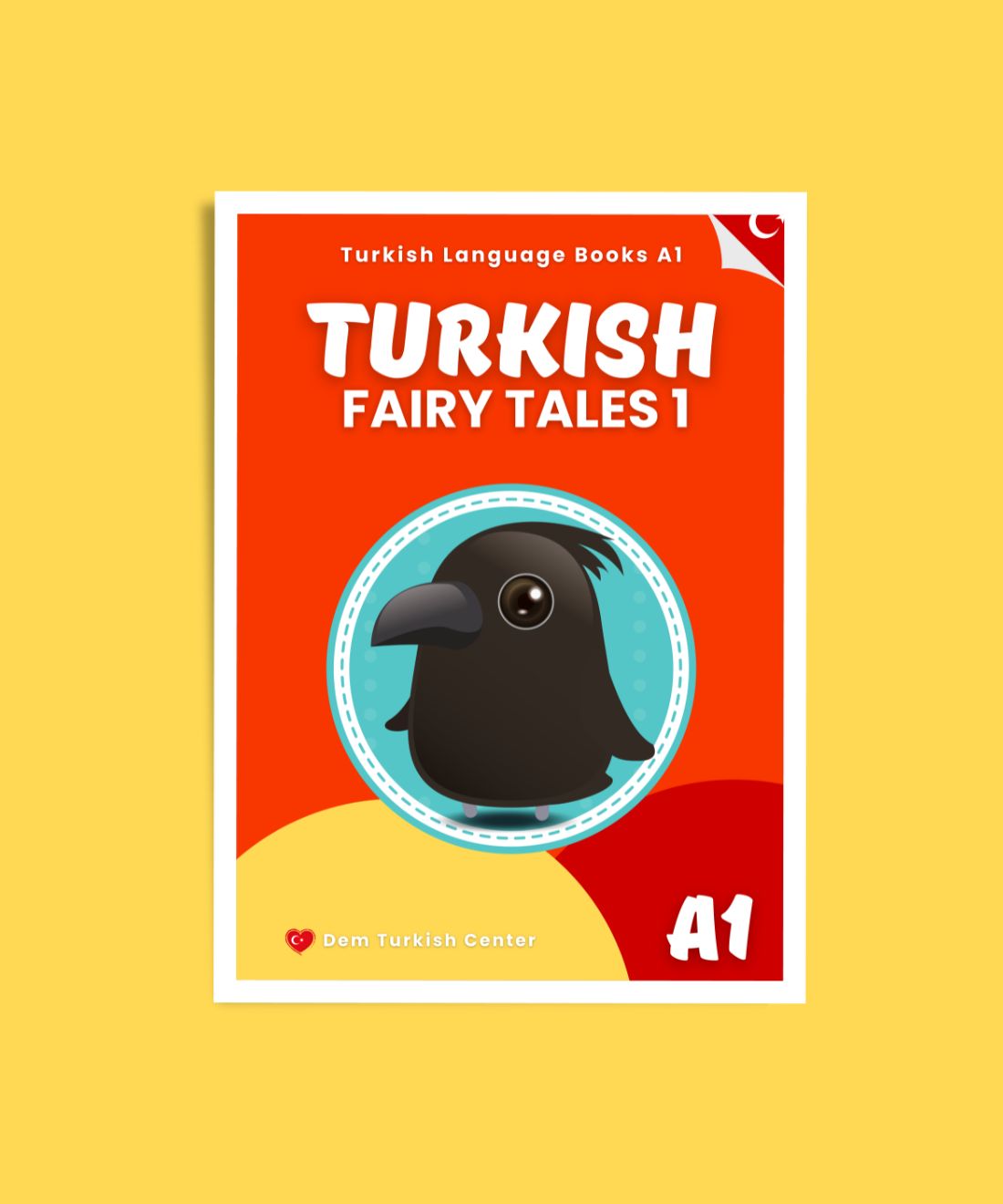
Why learning Turkish is easier than you think?
Picking up a new language can feel overwhelming, particularly when it involves a different alphabet, unfamiliar sounds, and complex grammar. Yet, Turkish breaks many of these preconceived notions and is actually much more accessible than most people assume.
WHY IS TURKISH LANGUAGE EASIER THAN YOU THINK?
In this blog post, we’ll dive into why learning Turkish is simpler than you might think and why it could be the ideal addition to your skill set.
A Logical and Consistent Grammar
Grammar is often one of the biggest obstacles to learning a new language.
Download Turkish grammar worksheets and courses for self-study!
Languages with irregular verb conjugations or complicated rules can quickly frustrate learners.
Turkish, on the other hand, stands out as a remarkably logical and well-structured language. Its grammar adheres to clear and consistent rules, leaving learners with very few exceptions to worry about.
Turkish is an agglutinative language, which means words and sentences are formed by adding suffixes to root words.
These suffixes follow predictable and consistent patterns, making it simpler for learners to understand and apply the structure.
Once you master the basic rules, you’ll be able to construct sentences with ease.
Unlike English, which is full of irregular verbs (such as verb “go” turning into “went”), Turkish verbs are highly consistent, sparing learners the frustration of memorizing countless exceptions.
A Phonetic Alphabet
Another factor that makes Turkish easier to learn than you might expect is its phonetic alphabet.
Turkish uses a modified version of the Latin alphabet with 29 letters, where each letter represents a single, consistent sound.
Words are pronounced exactly as they are written, removing the guesswork commonly found in languages like English, where letters and letter combinations can produce multiple sounds.
For instance, in Turkish, the letter “ç” consistently sounds like the “ch” in “chocolate,” and “ş” always sounds like the “sh” in “sheep.”
Once you’ve learned the pronunciation of each letter, you can accurately read any Turkish word aloud, even if it’s entirely unfamiliar to you.
A Vocabulary Full of Familiar Words
For example, in Turkish, the letter “ç” always corresponds to the “ch” sound in “chocolate,” while “ş” reliably produces the “sh” sound in “sheep.”
Once you’ve mastered the pronunciation of the alphabet, you can confidently read any Turkish word aloud, even if you’ve never seen it before.
- “Havuz” (pool) comes from the Persian word “Hawz.”
- “Pantolon” (pants) originates from French.
- “Banka” (bank) also has its roots in Italian and French.
In addition, Turkish has left its mark on other languages.
For example, English words such as “kaftan” and “divan” originate from Turkish.
Identifying these linguistic connections can make learning Turkish vocabulary both engaging and less daunting.
No Gendered Nouns
For those who have found gendered nouns in languages like Spanish, French, or German to be a challenge, Turkish offers a welcome relief.
In Turkish, nouns are not assigned genders, so there’s no need to memorize whether a table is masculine or feminine or modify articles and adjectives to match.
This absence of gendered grammar makes learning the language much simpler, allowing you to concentrate on other elements instead.
Improve your Turkish vocabulary in 30 days!
Clear Sentence Structure
Although Turkish sentence structure may appear strange at first, it is really rational and consistent.
Learn the word order in Turkish!
In contrast to the Subject-Verb-Object (SVO) order in English, the usual sentence structure is Subject-Object-Verb (SOV).
At first, this might seem strange, but with practice, it becomes instinctive.
Furthermore, because Turkish is an agglutinative language, a large portion of the grammatical information, such as possession or tense, is contained in the verbs and suffixes, which results in clear and efficient sentences. For example:
- English I will go to the market.
- Turkish Ben pazara gideceğim. (Literally: I market-to will-go.)
Once you understand the placement of each component, constructing sentences becomes straightforward.
A Supportive Learning Community
More than 85 million people speak Turkish, mostly in Turkey but also in places like Cyprus, Germany, and Bulgaria where Turkish-speaking minorities are strong.
Because Turkish is so widely used, there are many resources and chances to master the language.
There are many resources available to fit your learning style, whether you prefer traditional textbooks, language exchange networks like Tandem and HelloTalk, or apps like Duolingo and Memrise.
Turkish speakers are also frequently eager and helpful to students. Whether you practice in person or online, they are delighted to assist you and value your effort.
Exposure Through Popular Culture
Immersion in Turkish culture is one of the most fun ways to learn the language.
How to Immerse Yourself in Turkish Culture as a Traveler
In recent years, Turkish TV series, films, and music have become more and more well-known throughout the world.
15 Best Turkish Movies For Learning Turkish
You may mix language instruction with fun by watching a range of Turkish dramas with subtitles on websites like Netflix.
You can also enhance your conversational Turkish comprehension, vocabulary, and pronunciation by listening to Turkish music and podcasts.
For instance, binge-watching TV shows ("Dizi" in Turkish) like "The Protector" or "Diriliş: Ertuğrul" introduces you to idioms, ordinary language, and cultural quirks.
Your learning process will become more organic and pleasurable as you gradually pick up frequently used idioms and phrases.
Practical Benefits of Learning Turkish
In addition to being a simple language, studying Turkish can lead to new opportunities. Turkey serves as a center for business, tourism, and cross-cultural interaction.
10 Major Benefits of Learning Turkish
Knowing Turkish improves your trip and enables you to establish a stronger connection with locals, whether you're touring the ancient ruins of Ephesus, strolling through the busy streets of Istanbul, or lounging on the Antalyan beaches.
Additionally, Turkish is regarded as a crucial language in a number of fields, such as journalism, trade, and international relations.
Speaking Turkish well can help you stand out in competitive job marketplaces and advance your career.
Tips to Get Started
- Learn the Alphabet Start by mastering the Turkish alphabet and its phonetic sounds. This foundational step makes reading, writing, and pronunciation much easier.
- Focus on Common Suffixes Understanding how suffixes work in Turkish will help you decode sentences and build your vocabulary efficiently.
- Practice Daily Consistency is key. Spend a few minutes each day practicing Turkish through apps, flashcards, or conversational practice.
- Engage with Native Speakers Join online forums, attend language meetups, or find a language partner to practice speaking and listening.
- Immerse Yourself Watch Turkish shows, listen to Turkish music, and try to think in Turkish whenever possible.
Learning Turkish might initially seem like stepping into a whole new world, but with its logical grammar, phonetic alphabet, and abundant resources, it’s more accessible than you think.
Embrace the journey, celebrate small victories, and enjoy the cultural richness that comes with mastering this beautiful language. Before you know it, you’ll be navigating Turkish conversations with confidence and opening doors to new friendships, opportunities, and experiences.














